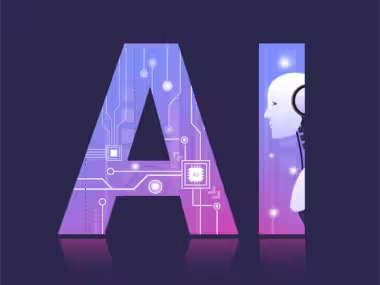How Generative AI Will Boost Business Productivity Worldwide
Generative AI has rapidly transformed various sectors, revolutionizing how businesses operate. By harnessing the power of advanced algorithms and machine learning, organizations can enhance efficiency, reduce costs, and foster innovation. This article explores how generative AI boosts business productivity and the myriad ways it can reshape industries globally.
Understanding Generative AI
Generative AI refers to algorithms that can create new content, whether text, images, music, or even code. Unlike traditional AI, which analyzes data to produce outputs, generative AI actively generates new data based on patterns learned from existing information. By employing deep learning techniques, this technology can mimic human creativity, offering significant benefits to businesses.
The Evolution of Generative AI
Generative AI has evolved significantly over the past decade. Initially, it emerged in niche applications like art generation and music composition. However, as machine learning models improved, its applications expanded to various sectors, including finance, healthcare, marketing, and more. Today, tools like OpenAI’s GPT-3 and DALL-E showcase the potential of generative AI, enabling businesses to create tailored solutions that drive productivity.
Enhancing Creativity and Innovation
One of the most significant ways generative AI boosts productivity is by enhancing creativity. Businesses often struggle with brainstorming and ideation, but generative AI tools can generate numerous ideas quickly.
For instance, marketing teams can use generative AI to draft compelling ad copies, design visual content, and create social media posts. These tools can analyze market trends and consumer preferences, ensuring the generated content resonates with target audiences. Consequently, companies can spend less time on creative processes and focus more on strategy and execution.
Case Study: Marketing Agencies
Consider a marketing agency that employs generative AI tools. By using AI-generated content, the agency can produce multiple campaign variations tailored to different demographics. This capability allows teams to test and iterate quickly, resulting in more effective campaigns and better ROI.
Streamlining Operations
In addition to enhancing creativity, generative AI streamlines operations by automating repetitive tasks. Businesses often grapple with mundane activities that consume valuable time and resources.
Generative AI can automate these tasks, allowing employees to focus on higher-value activities. For example, generative AI can generate reports, analyze data, and even assist in project management. This automation leads to improved efficiency, as employees can devote more time to strategic initiatives rather than getting bogged down by routine tasks.
Benefits of Automation
- Increased Efficiency: By automating repetitive tasks, companies can reduce human error and speed up processes.
- Cost Savings: Automation leads to lower labor costs, as fewer resources are required to complete tasks.
- Improved Employee Satisfaction: Employees can engage in more meaningful work, increasing job satisfaction and reducing turnover.
Enhancing Decision-Making
Generative AI plays a crucial role in enhancing decision-making processes. In today’s fast-paced business environment, organizations must make informed decisions quickly.
Generative AI can analyze vast amounts of data, uncover patterns, and generate predictive insights that help leaders make data-driven choices. By using AI-driven analytics, businesses can evaluate market trends, customer behavior, and operational efficiencies.
Real-Time Data Analysis
With generative AI, companies can access real-time data analysis, leading to timely interventions. For instance, a retail company might use AI to analyze sales data, identifying trends and adjusting inventory levels to meet demand. This capability ensures businesses stay agile and responsive, ultimately boosting productivity.
Personalizing Customer Experiences
Customer experience has become a key differentiator in today’s competitive landscape. Generative AI enables businesses to create personalized experiences for their customers, enhancing satisfaction and loyalty.
For instance, AI can analyze customer data to generate tailored product recommendations, promotional offers, and content. This personalization not only boosts sales but also fosters deeper customer relationships.
Example: E-commerce Platforms
E-commerce platforms can leverage generative AI to create personalized shopping experiences. By analyzing a customer’s browsing history, preferences, and purchase patterns, AI can generate product recommendations that align with their interests. As a result, customers receive a curated shopping experience, leading to increased conversion rates and customer satisfaction.
Driving Innovation in Product Development
Generative AI significantly influences product development by accelerating the design process and enhancing innovation. Businesses can use AI to generate design prototypes, simulate product performance, and test various configurations.
This rapid prototyping enables companies to bring products to market faster and more efficiently. Moreover, generative AI can analyze user feedback and market trends, leading to iterative improvements that meet customer needs.
Success Story: Automotive Industry
In the automotive industry, generative AI has transformed the design process. Car manufacturers use AI to generate multiple design iterations based on specific performance criteria. This capability allows engineers to explore innovative designs while ensuring optimal functionality and safety.
Overcoming Challenges with Generative AI
Despite its numerous benefits, businesses must navigate challenges when implementing generative AI. One primary concern is data security. As organizations rely on vast amounts of data, ensuring the security and privacy of this information is critical.
Additionally, integrating generative AI into existing systems may require significant investment and training. However, organizations that successfully overcome these challenges can reap substantial rewards in terms of productivity and efficiency.
Addressing Data Security Concerns
To mitigate data security risks, businesses should prioritize robust cybersecurity measures. Implementing encryption protocols, access controls, and regular audits can help protect sensitive information. Furthermore, organizations must stay informed about regulatory changes regarding data privacy to ensure compliance.
The Future of Generative AI in Business
As generative AI technology continues to evolve, its impact on business productivity will only grow. Future advancements in AI algorithms, data processing, and machine learning techniques will unlock even more capabilities.
For instance, AI may soon develop the ability to simulate complex business scenarios, providing leaders with insights to make better strategic decisions. Additionally, as AI becomes more integrated into everyday operations, the potential for enhanced collaboration between humans and machines will further boost productivity.
Embracing a Collaborative Future
To thrive in this evolving landscape, businesses must embrace a collaborative approach. Encouraging teams to work alongside generative AI will foster innovation and creativity. By understanding AI’s capabilities and limitations, organizations can leverage this technology to enhance productivity while empowering employees.
Conclusion
In conclusion, generative AI has the potential to revolutionize business productivity across the globe. By enhancing creativity, streamlining operations, improving decision-making, personalizing customer experiences, and driving innovation, generative AI is set to transform how businesses operate. While challenges exist, the rewards far outweigh the risks. Organizations that invest in generative AI today will likely reap the benefits in the years to come, positioning themselves as leaders in their industries.





